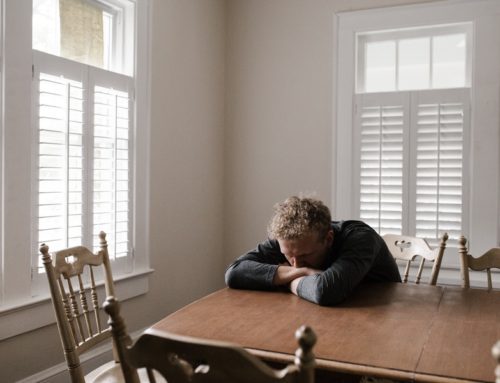Ever feel guilty over blowing your New Year’s resolutions when it’s still January? Although New Year’s resolutions are not too serious, many of us carry around deep feelings of shame and guilt from past life events that deeply wound our inner emotional core. However, they’re not the same. Although guilt and shame are common features of depression and anxiety disorders, they are two distinct concepts.
Guilt. Guilt is a feeling of responsibility for an offense, misdeed or crime. Guilt can be healthy or unhealthy. When we’ve done something that’s objectively wrong, feeling guilt can motivate us to do better or right the wrong. However, guilt can easily be out of proportion to the offense. A person who feels terribly over forgetting a new acquaintance’s name is experiencing too much guilt, for example. A person who feels guilty over criticizing a friend over a small misdeed, however, can be motivated to apologize.
Shame. Shame is a painful feeling of being diminished as a person, a feeling of harm done to our self-worth. Shame involves a sense of being worth less than others. Shame is a highly destructive feeling. A person who feels intense shame feels unworthy of love and worthless as a person. Shame comes from internalized messages received from others, usually from a young age. These messages lead a person to believe that they have no worth. Unlike guilt, shame is associated with adult addiction, suicide, bullying and being in abusive relationships.
People with depression or anxiety disorders often feel intense guilt or shame, even when they don’t have to. With many psychological disorders, people feel guilt things that they haven’t done and shame for things that they aren’t. Feelings of worthlessness are common to all forms of depression.
Self-compassion is an essential part of living with depression and anxiety. Feeling compassion for ourselves is the first step in healing old wounds and hurts from over the years. Self-forgiveness is also a necessary part of healing. Treating ourselves with kindness and compassion, while forgiving ourselves of our mistakes, relieves a lot of the internal burdens of guilt and shame. That’s an important part of self-care for treating anxiety and depression, as guilt and shame add more stress to these disorders.
Damaris Aragon, ARNP, BC provides a full spectrum of mental health care to people in Spokane, Washington, and surrounding areas. She focuses on providing personalized, compassionate care that adheres to current evidence-based standards. Reach out to Damaris through her contact page or calling 509-342-6592.






